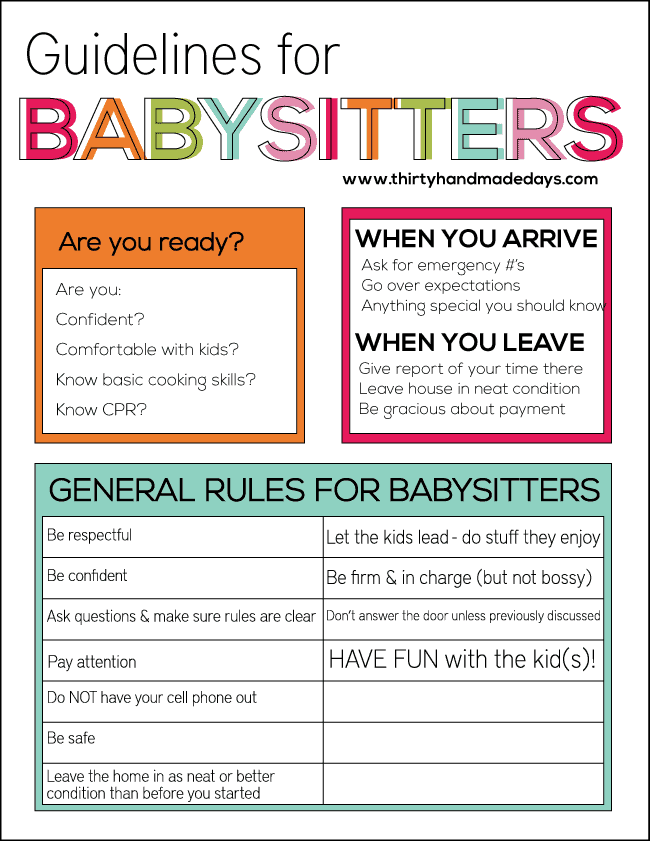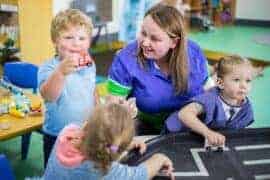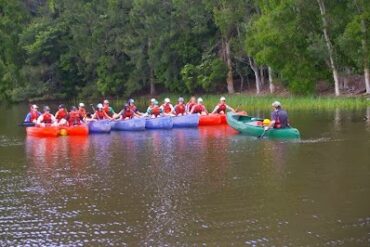Deciphering the Babysitting Age Dilemma: What’s the Right Time for Your Child?
Welcome, super parents! ? Are you pondering over the thought of when your child can start babysitting? That’s a big step for both of you! Taking on the responsibility of looking after another person’s child is no small feat, and it’s essential to ensure that your own youngster is ready for the challenge. Sit back, relax, and let’s dive into the all-important question: What is the right age for babysitting?
Legal Age Requirements
First things first, is there a legal baseline? ? While many countries and states don’t have strict legal age requirements for babysitters, it’s generally recommended that a babysitter should be at least 13 years old. However, this can vary depending on local laws and guidelines. It’s important to check with your local child welfare agency or government resources to be sure you’re in the clear.
Maturity Over Age
But wait – there’s more to babysitting than just reaching a certain age. Maturity plays a colossal role! ? A 12-year-old might be more capable of handling emergencies and staying calm under pressure than a 15-year-old. It’s all about whether your child can responsibly manage situations that could arise. Can they problem solve? Are they good with kids? Do they know how to perform basic first aid? These are the real questions that need answering.
Is Your Child Ready?
As a rule of thumb, let’s look at some maturity indicators to determine if your child might be babysitting material:
- Responsibility: Do they complete their chores and homework without constant reminders?
- Common Sense: Can they make good decisions when you’re not around?
- Independence: Are they capable of taking care of themselves? This includes preparing simple meals and adhering to safety rules.
- Experience with Children: Have they spent time around younger kids? Maybe they have younger siblings they help care for, which can be a good indicator of readiness.
Preparation is Key
Deciding to let your child babysit isn’t just about giving them a ‘yes’ or ‘no.’ It’s also about preparing them for success. Ensure your young babysitter is equipped with the necessary knowledge through babysitting courses, first-aid training, and some practice runs with you at home or while watching siblings.
Knowing what to expect and how to handle different types of behavior or emergencies will not only give your child confidence but will also give you peace of mind. Don’t forget to discuss important info like bedtimes, allergies, and emergency contact numbers with them and the parents of the children they’ll be watching! ?
Tying it all Together
While there’s plenty of factors to consider when determining the optimal babysitting age, remember: It ultimately comes down to your individual child and how ready they feel. Encourage open communication, provide them with tools for success, and trust in their growing independence. When they do embark on their first babysitting gig, it will be a rewarding experience that nurtures their sense of responsibility and self-esteem!
So, super parents, are you feeling a bit more informed? We’ve only just begun scratching the surface on this topic, and there’s still much more to learn. Stick with us as we guide you through the journey of preparing your youngster for their first steps into the world of babysitting. Let’s give them the wings to soar with confidence and the roots to stay grounded in safety and responsibility. And always remember, the babysitting adventure is not just about watching children – it’s also about fostering growth, developing leadership, and creating trust. Stay tuned for more insights in our next section!
Until next time, keep nurturing those young minds – after all, they are the future babysitters, leaders, and change-makers of our world! ??

5 Essential Things Parents Should Know When Preparing Their Child for Babysitting
1. Babysitting Certifications and Education
Knowledge is power, especially when it comes to babysitting! ? It’s crucial for young babysitters to have the right information and skills before they start. Look for local or online babysitting courses that cover the basics, such as child care, first aid, CPR, and emergency response. Make sure your child earns a certification, which not only bolsters their credibility but also shows that they’re serious about their responsibilities. Many community centers, hospitals, and organizations like the Red Cross offer specialized classes for young babysitters.
2. Practical Experience
Practice makes perfect! Before taking on a babysitting job, it’s wise for your child to gain some hands-on experience. ? Encourage them to start by watching over younger siblings or helping family friends or neighbors with their kids while they are still at home. This way, they can become familiar with the demands of babysitting in a controlled, less stressful environment. It’s an excellent opportunity for them to learn about the different age-appropriate activities, feeding, nap times, and dealing with tantrums.
3. Communication Skills
Good communication is the key to any great babysitting experience! ?? Make sure your child knows how to articulate ideas clearly and listen to others effectively. They should be comfortable discussing plans, rules, and expectations with both the kids they’re watching and the parents who’ve hired them. Moreover, teach them the importance of being assertive while being respectful. It’s important that they can enforce rules without being too harsh and know-how to reach out to adults if something goes wrong.
4. Safety First
As a parent, you naturally understand that safety comes above all else. Before your child sets out to babysit, it’s essential they know basic safety protocols. ?? Walk them through various scenarios such as what to do in the event of a fire, if someone comes to the door, or if the child they’re watching gets hurt. Make sure they understand the importance of never sharing personal information or details about the family’s routines with strangers. Lastly, equip them with necessary contacts in case of emergencies – that includes parents’ contact information, nearby relatives, and emergency services.
5. Setting Boundaries and Rules
Being friends with the children they babysit is great, but it’s equally important for your child to understand the importance of setting boundaries. ? Go over your family’s rules and make sure they are able to translate these into the babysitting environment. Discuss topics like curfews, snack limitations, and screen time rules. This way, your child will be able to establish respect early on, preventing potential conflicts and confusion for the young ones in their care.
Equipping your child with these vital tools and knowledge can greatly enhance their babysitting journey. They’ll be prepared to take on responsibilities, face unexpected challenges, and most importantly, ensure the safety and well-being of the kids they’re entrusted with. By taking these steps, you’re not just helping them become a capable babysitter; you’re also aiding in their growth as a responsible, confident, and mature individual.
Navigate this new chapter with enthusiasm and confidence. Happy and safe babysitting awaits! ??
See more great Things to Do with Kids in New Zealand here. For more information see here
Disclaimer
The articles available via our website provide general information only and we strongly urge readers to exercise caution and conduct their own thorough research and fact-checking. The information presented should not be taken as absolute truth, and, to the maximum extent permitted by law, we will not be held liable for any inaccuracies or errors in the content. It is essential for individuals to independently verify and validate the information before making any decisions or taking any actions based on the articles.




